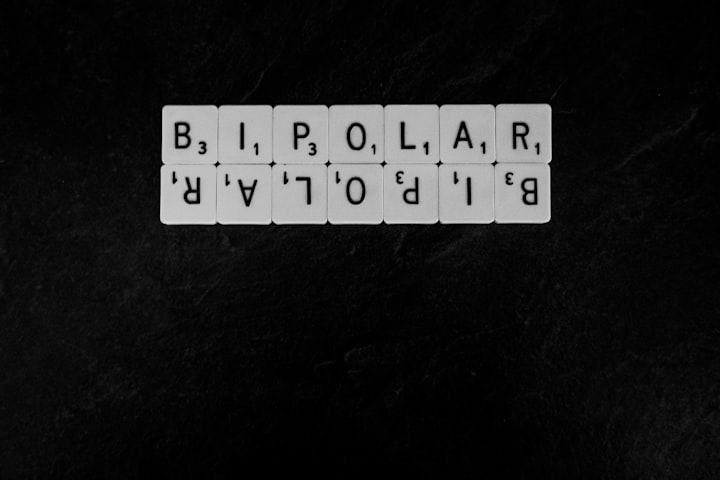The Importance of Finding the Right Treatment Plan for Bipolar Disorder
The Importance of Finding the Right Treatment Plan for Bipolar Disorder

Bipolar disorder is a complex mental health condition that affects millions of people worldwide. It is characterized by extreme mood swings, from episodes of high energy, euphoria, and grandiosity to episodes of low energy, sadness, and hopelessness. The symptoms of bipolar disorder can be challenging to manage, but with the right treatment plan, individuals with the condition can live healthy and fulfilling lives. In this article, we will explore the importance of finding the right treatment plan for bipolar disorder and the role of the best psychologists in Delhi in providing effective treatment.
The Importance of Finding the Right Treatment Plan for Bipolar Disorder
Bipolar disorder is a lifelong condition that requires ongoing management. The symptoms of bipolar disorder can be unpredictable and can significantly impact an individual's life. Therefore, finding the right treatment plan is essential for managing symptoms and improving quality of life.
The right treatment plan for bipolar disorder will depend on several factors, including the individual's symptoms, medical history, and personal preferences. Treatment plans typically involve a combination of medication and therapy, and it is essential to work closely with a healthcare provider to develop a personalized plan that addresses individual needs and goals.
Medication for Bipolar Disorder
Medication is often the first line of treatment for bipolar disorder, as it can help stabilize mood and reduce the frequency and intensity of mood swings. There are several types of medication used to treat bipolar disorder, including mood stabilizers, antipsychotics, and antidepressants.
Mood stabilizers are the most commonly used medication for bipolar disorder, as they help regulate the ups and downs of mood swings. Lithium is the most well-known mood stabilizer and has been used for decades to treat bipolar disorder. It works by reducing the activity of certain chemicals in the brain that contribute to mood swings.
Antipsychotics are another class of medication used to treat bipolar disorder. They are often used in combination with mood stabilizers to help control symptoms of mania or psychosis. Antipsychotics work by blocking certain chemicals in the brain that can cause hallucinations, delusions, and other symptoms of psychosis.
Antidepressants are sometimes used to treat bipolar disorder, but they must be used with caution. In some cases, antidepressants can trigger manic episodes or make existing manic symptoms worse. Therefore, antidepressants are usually only prescribed for bipolar depression when other treatments have not been effective.
Therapy for Bipolar Disorder
In addition to medication, therapy is an important part of treating bipolar disorder. Therapy can help individuals with bipolar disorder learn to manage their symptoms, identify triggers that can cause mood swings, and develop coping strategies for dealing with stress.
Several types of therapy are used to treat bipolar disorder, including cognitive-behavioral therapy (CBT), psychoeducation, and interpersonal and social rhythm therapy (IPSRT).
CBT is a type of therapy that focuses on changing negative thought patterns and behaviors that can contribute to mood swings. It can help individuals with bipolar disorder learn to identify and challenge negative thoughts and develop positive coping strategies.
Psychoeducation is a type of therapy that focuses on educating individuals with bipolar disorder and their families about the condition. It can help individuals better understand their symptoms, learn to recognize triggers that can cause mood swings, and develop a plan for managing symptoms.
IPSRT is a type of therapy that focuses on regulating daily routines and establishing regular patterns of behavior. It can help individuals with bipolar disorder develop a stable routine that can help regulate mood and reduce the risk of mood swings.
The Role of the Best Psychologists in Delhi
The best psychologists in Delhi play a critical role in the treatment of bipolar disorder, as they can provide individuals with bipolar disorder with the support and guidance they need to manage their symptoms effectively. They can work with individuals to develop a personalized treatment plan that addresses their specific needs and goals.
Thebest psychologists in Delhi can also provide therapy to individuals with bipolar disorder. They can help individuals develop coping strategies for dealing with stress, identify triggers that can cause mood swings, and manage symptoms effectively. The best psychologists in Delhi are trained and experienced in treating bipolar disorder and can provide individuals with the tools they need to live healthy and fulfilling lives.
Choosing the Best Psychologist in Delhi for Bipolar Disorder
Choosing the best psychologist in Delhi for bipolar disorder is essential for effective treatment. There are several factors to consider when choosing a psychologist, including their experience, training, and areas of specialization.
Experience: It is essential to choose a psychologist who has experience treating bipolar disorder. They should have experience working with individuals who have similar symptoms and have helped them manage their symptoms effectively.
Training: It is important to choose a psychologist who has received training in the treatment of the bipolar disorder. They should be familiar with the latest research on the condition and should be able to provide evidence-based treatment.
Areas of Specialization: Psychologists may specialize in different areas of mental health, including bipolar disorder. It is important to choose a psychologist who specializes in bipolar disorder and has experience working with individuals with the condition.





Comments
There are no comments for this story
Be the first to respond and start the conversation.